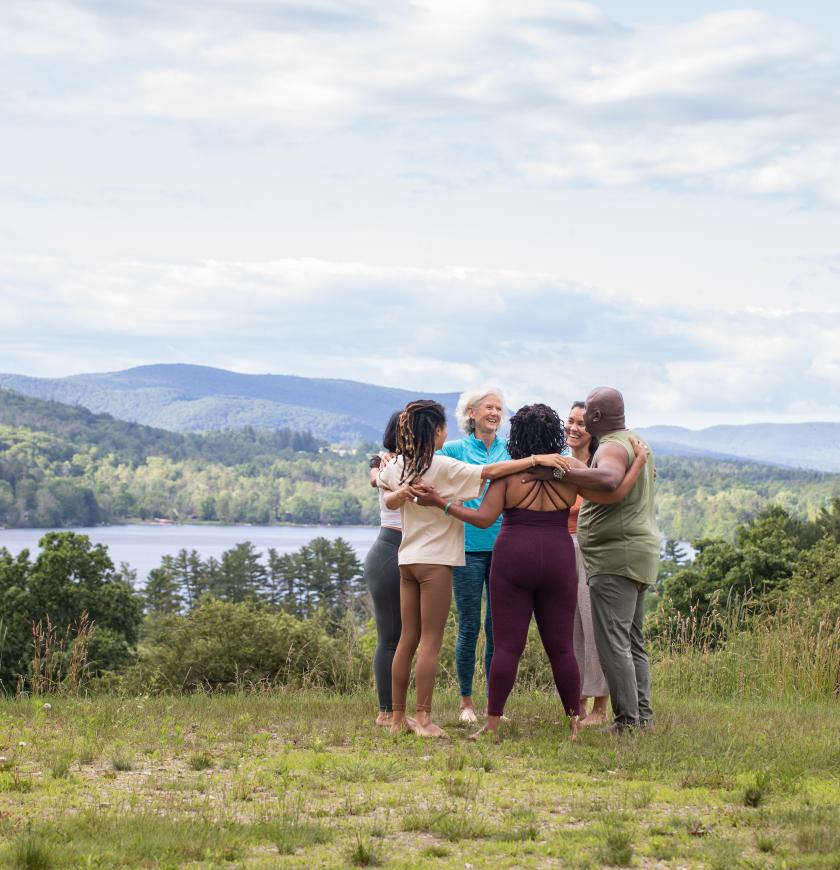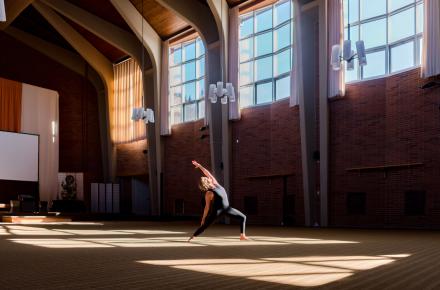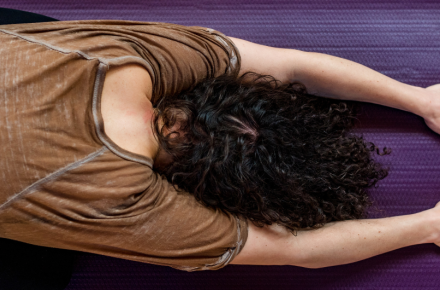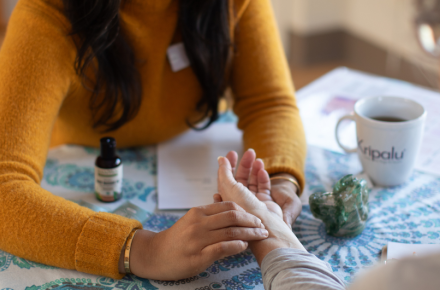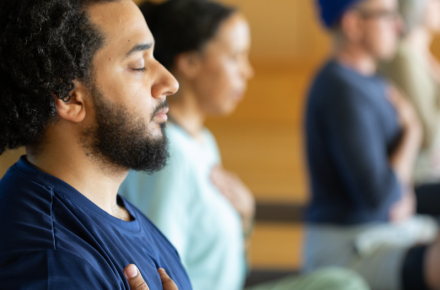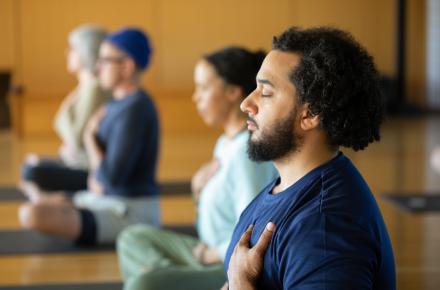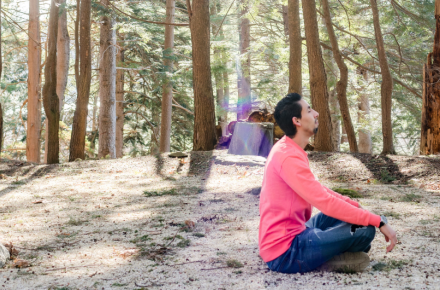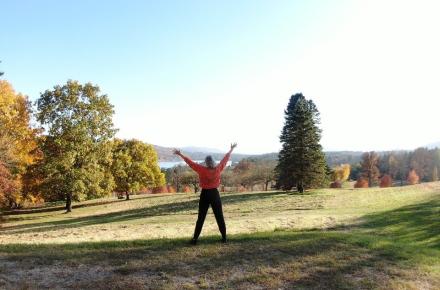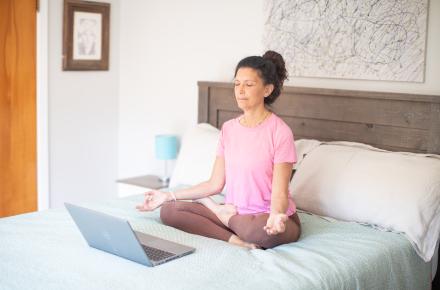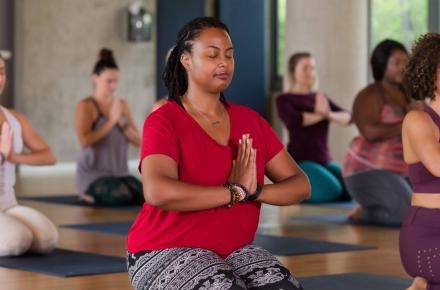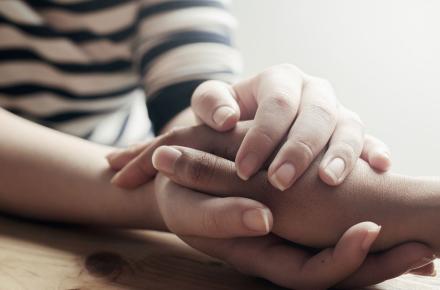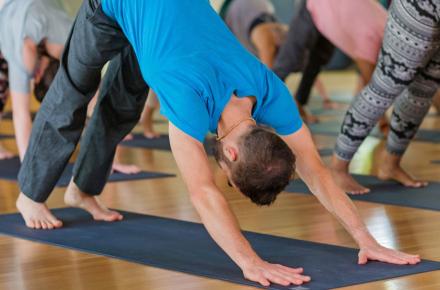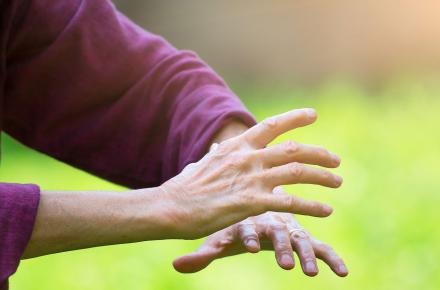Raising the Bar for Well-Being: How One Lawyer Found More Happiness at Work

The happy lawyer. Some may think that the phrase is an oxymoron. Statistics on lawyer well-being may lead attorneys to believe that practicing law excludes them from living a vibrant, balanced life. The thought process goes something like this: Doing meaningful work comes at the cost of personal health, and happiness while practicing law is unattainable. Yet, 10 years of research compiled by Kripalu on the impact of integrating mindful stress-resilience tools in high-stress, high-stakes professions offers another possible verdict for life as a lawyer. Imagine how you might feel daily if you experienced a 32 percent decrease in self-perceived stress—one of the findings across professional sectors for those who participated in Kripalu's RISE program?
Recently, I was teaching mindfulness to a group of law school students and glanced down to notice that the book they were reading was entitled The Anxious Lawyer. For a profession that is paid to anticipate and resolve worst-possible outcomes, the assumption that we are anxious, depleted, and unhealthy is well founded. Attorneys are paid problem solvers, and often eschew the notion of caring for themselves. The American Bar Association National Task Force on Lawyer Well-Being detailed the impact on health and well-being of the culture and practices of lawyers. Local bar associations and law firms are beginning to acknowledge this lapse and engage in this conversation.
RISE reframes the possibility for well-being for lawyers. It is indeed conceivable to do deeply engaging work and feel less stressed. They are not mutually exclusive. Integrating breathing techniques into the day; practicing mindfulness at your desk, before a meeting, or even waiting for the elevator; and connecting to the meaning and value of the work you do hold more than promise: They are demonstrated game changers in terms of career longevity and satisfaction. Just as attorneys learn research skills, advocacy skills, and writing skills, it is equally important for us to learn skills of stress resilience.
Recently, I had a case that required me to work all night to prepare for an emergency hearing the following morning. At about 3:00 in the morning, I returned to a negative thought loop, convinced that exhaustion was my lot in my life. Then, I stopped. I took three long deep breaths. Immediately, I felt a subtle shift in in my level of panic. I began practicing the Complete Breath—a slow deep inhale, and a slow deep exhale. And I felt even better. My heart stopped racing, my shoulders came down several inches, and I felt my chest relax. Most importantly, I felt the strain in my head relax. I began to think more clearly.
I then recalled the exercise we share in the RISE program, in which we ask participants to identify the value that animates their work. My values are compassion and justice. And with that, I thought about the client I was working to help. I thought of the gravely difficult situation they were in, I thought about my skill set, and how much it was needed here—and suddenly, it all changed. My tiredness and frustration shifted and I felt honored that, in their moment of need, my skills aligned perfectly with what had to be done to resolve the situation. And, by morning, I would be able to create more safety and security for that client.
Stress-resilience tools and connecting to meaning animate my work. They enable me to pause throughout the day, checking in with how I am feeling, so I can thoughtfully and strategically expend my energy to meet demands as necessary—and return home in evening energized and available for the ones I love.
I can shift outcomes for clients, and for myself. That is my newfound power.
